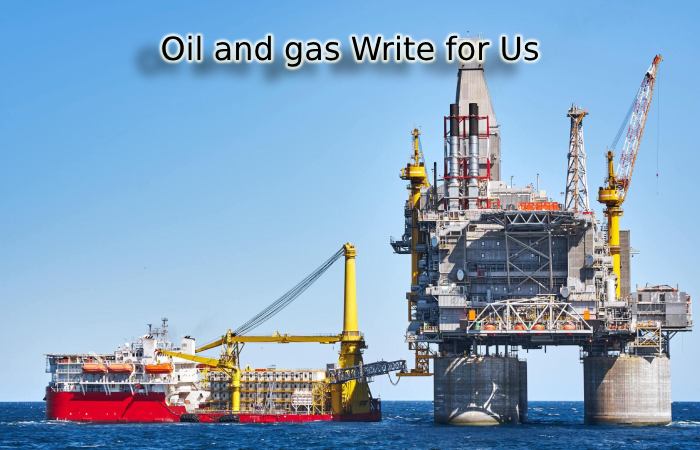Oil and gas Write for Us

What is oil and gas monitoring?
Oil and gas sites use many expensive devices operated remotely, including subsea sites and pipelines that stretch hundreds of miles through rugged terrain in remote locations and deep oceans. Oil and gas monitoring allows owners and operators to monitor these assets 24/7, often including automated alerts to warn of changing situations before they worsen.
What are the occupational benefits of oil and gas monitoring?
The latest oil and gas monitoring systems use digital technologies like the cloud, remote sensing, drones, and automatic alerts to save time and money. By reducing travel and monitoring costs, employees can be more productive.
The use cases and business benefits are numerous. The added security is a significant benefit, as cameras with night vision and motion detection are often used to detect theft or vandalism. Similarly, monitoring systems can alert operators when people are on-site and let them know what contractors are doing at all times. Security is another aspect. Since monitoring systems can communicate with gauges on tanks, pumps, and other equipment, potentially dangerous situations can be automatically identified and avoided without risk to human health.
The oil and gas segment is among the top eight industries in India, and it plays a vital role in influencing the decision-making of all other major sectors of the economy.
India’s economic growth is a close link to its energy demand, so oil and gas demand is expected to India maintain its position as the world’s third-largest oil consumer in 2021.
The government has taken various measures to meet the growing demand. It allowed 100% foreign direct investment (FDI) in many segments of the sector, including natural gas, petroleum products, and refineries. Today it entices both internal and foreign investment, as evidenced by the presence of Reliance Industries Ltd (RIL) and Cairn India.
According to the IEA (India Energy Outlook 2021), primary energy demand is almost double to 1,123 million tons of oil equivalent. The country’s gross domestic product (GDP) expects to reach $8.6 billion by 2040.
How to Submit Your Article to Businesss Web?
To submit article, you can pitch us at contact@businesssweb.com.
Why Write For Businesss Web – Oil and Gas Write For Us?
- Writing for Businesss Web can expose your website to customers looking for Oil and Gas.
- Businesss Web presence is on social media, and we will share your article with the Oil and Gas-related audience.
- You can reach out to Oil and Gas enthusiasts.
Terms Related to Oil and Gas Write For Us
- Oil
- Gas
- Industries
- crude oil
- fossil fuel
- fuel
- gasoline
- kerosene
- natural gas
- petrol
- pipeline
- well
- blowout
- petroleum
- power
- energy
Search Terms Related to Oil and Gas Write For Us
- guest post
- submit post
- contribute post
- submit an article
- Oil and Gas write for us
- Oil and Gas guest post
- Oil and Gas submit post
- Oil and Gas contribute post
- suggest a post
- Oil and Gas + write for us
- Oil and Gas + guest post
- Oil and Gas + submit post
- Oil and Gas + contribute post
- guest author
- write for us + Oil and Gas
- guest post + Oil and Gas
- submit post + Oil and Gas
- contribute post + Oil and Gas
- writers wanted
- write for us Oil and Gas
- guest post Oil and Gas
- submit post Oil and Gas
- contribute post Oil and Gas
- become a guest blogger
Guidelines of The Article on Businesss Web – Oil and Gas Write For Us
- We at Businesss Web welcome fresh and unique content related to Oil and Gas.
- Businesss Web allows a Minimum Of 500+ Words Related to the Oil and Gas.
- The Businesss Web editorial team does not encourage promotional content associated with Oil and Gas.
- To publish an article at Businesss Web, please email us at contact@businesssweb.com.
- Businesss Web allows articles related to Business, Marketing, Oil & Gas, Real Estate and many more.
Related Pages
Crypto Write For Us
Content Marketing Write For Us
Business Growth Write For Us
Accessory Equipment Write For Us
Biometrics Write For Us


